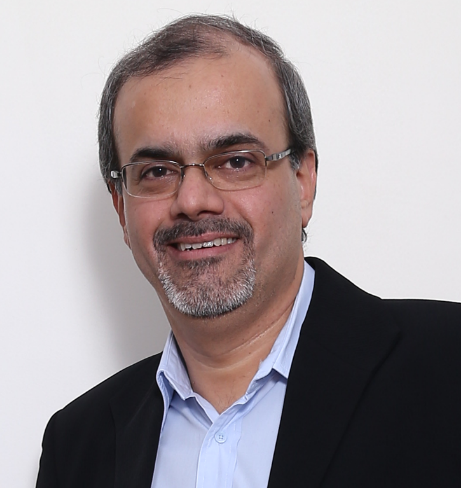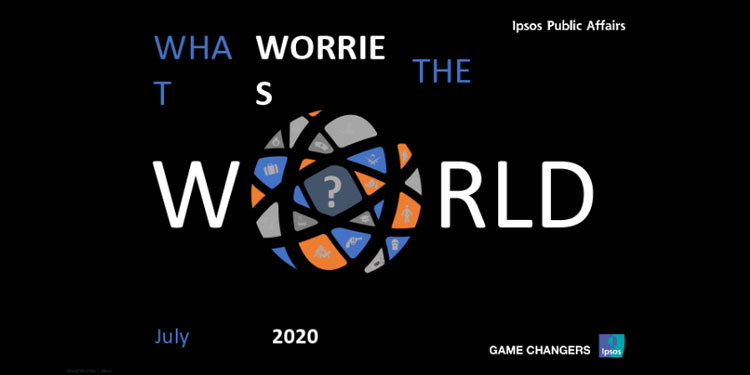New Delhi: According to the July wave of the Ipsos What Worries the World global monthly survey, 61% of the global citizens polled believe their country is on the wrong track. India on the contrary has bucked the global trend of pessimism, with at least 60 percent of the urban citizens polled believing their country is moving in the right direction. Though there is a 5% downward slide in optimism levels from the June round.
Interestingly, the countries most optimistic about the direction their country was headed into, were Saudi Arabia (84%), Malaysia (75%), Australia (60%) and India (60%). And the most pessimistic about the future were Chile (84%), South Africa (79%), Hungary (77%), France (73%), Belgium (73%), US (72%), Turkey (70%) and Italy (70%).
What worries global citizens and Indians?
In the July wave, the top global issues that emerged were: COVID 19 (43%), Unemployment (40%), Poverty and social inequality (32%), Financial and political corruption (27%), Crime and violence (24%) and Healthcare (22%). While for urban Indians per se, the top issues perturbing them were COVID19 (61%), Unemployment (50%), Financial and political corruption (29%), Poverty and inequality (26%) and Healthcare (25%).

“Largely, the worries of global citizens are a lot similar to what urban Indians are experiencing, though concerns around coronavirus and lack of jobs is far more pronounced for urban Indians. COVID19 scare for India is far from over and it is collaterally impacting jobs, the standard of living, healthcare cost, and there is the fear of corruption levels going up, as things continue to be in a state of flux,” said Amit Adarkar, CEO, Ipsos in India.
COVID19 Worry – Who worries more; who worries less
COVID19 is far from over. And this worry is the top preoccupation (43%) of global citizens.
And the markets worrying most about the Corona Virus were Chile (61%), India (61%), Peru (60%), Saudi Arabia (60%), Japan(59%), Malaysia (57%), Great Britain (56%), South Korea (56%) and Spain (52%).
On the other hand, some markets were less bothered about the coronavirus and included Hungary (15%), Russia (22%), Turkey (28%), and Italy (28%).
“The govt has increased testing and ramped up treatment facilities, but until people follow all SOPs of hygiene, protective masks, and social distancing, the infection numbers will not taper off. Weekend curfews, short-term lockdowns, and subdued festivals/ celebrations are hindering normalcy resumption and may further impact consumer sentiment adversely,” added Adarkar.
Top four global issues
1) COVID-19 (47%)
2) Unemployment & Jobs (40%)
3) Poverty and social inequality(32%)
4) Financial/ political corruption (27%)
Top four issues in India
1) COVID-19 (61%)
2) Unemployment& Jobs (50%)
3) Financial and political corruption(29%)
4) Poverty and social inequality (26%)
Technical Note
Full results available from www.ipsos-mori.com.
The survey was conducted in 27 countries around the world via the Ipsos Online Panel system. The 27 countries included are Argentina, Australia, Belgium, Brazil, Canada, Chile, France, Great Britain, Germany, Hungary, India, Israel, Italy, Japan, Malaysia, Mexico, Netherlands, Peru, Poland, Russia, Saudi Arabia, South Africa, South Korea, Spain, Sweden, Turkey and the United States of America.
18,505 interviews were conducted between June 19th, 2020 – July 3rd, 2020 among adults aged 18-74 in the US, South Africa, Turkey, Israel, and Canada and age 16-74 in all other countries. Data are weighted to match the profile of the population.
In 17 of the 27 countries surveyed internet penetration is sufficiently high to think of the samples as representative of the wider population within the age ranges covered: Argentina, Australia, Belgium, Canada, France, Germany, Hungary, Israel, Italy, Japan, Poland, South Korea, Spain, Sweden, Great Britain, and the United States. The remaining 11 countries surveyed: Brazil, Chile, India, Malaysia, Mexico, Netherlands, Russia, Peru, Saudi Arabia, South Africa, and Turkey have lower levels of internet penetration and so these samples should instead be considered to represent a more affluent, connected population. These are still a vital social group to understand in these countries, representing an important and emerging middle class.

















